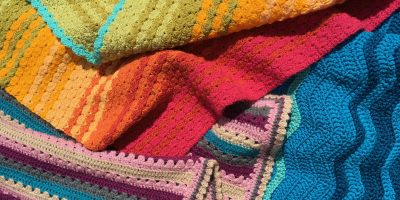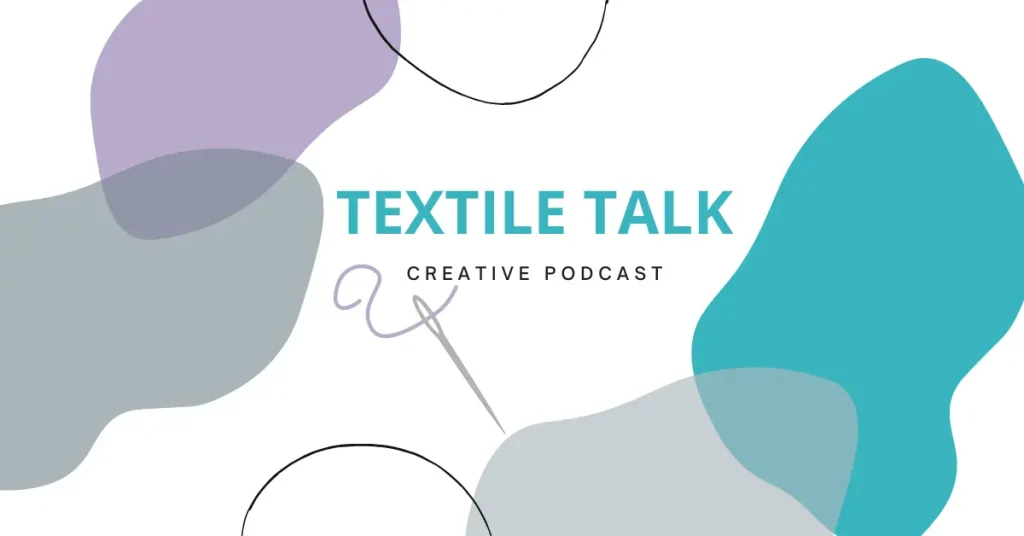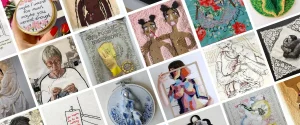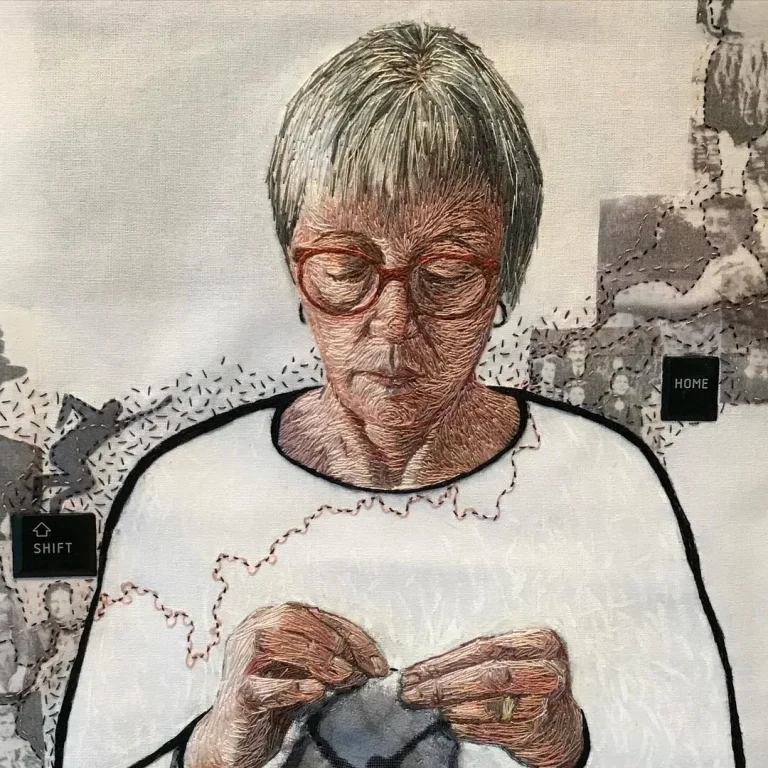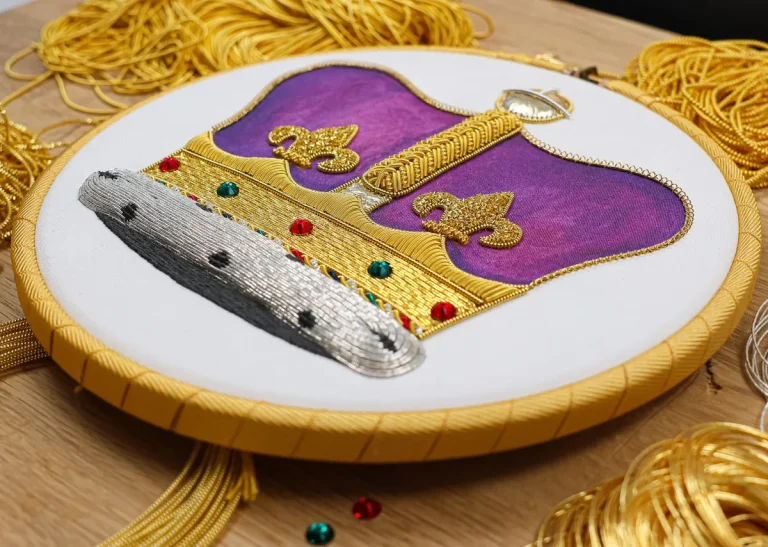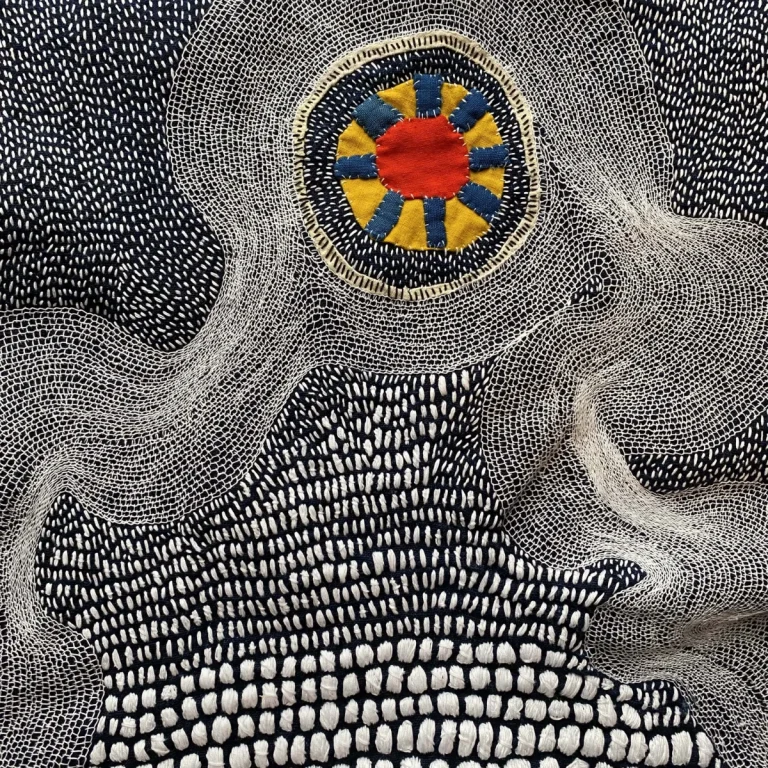Knowledge is Power and Power is Rewarding.
When you have a passion the best way to develop your skills and interest is to nurture your curiosity. Feed it with enough inspiration, knowledge, and dedicate enough time to practicing techniques, and your hobby could turn into an income – if that’s what your heart desires. Having taught hundreds, if not thousands of students via our distance learning online courses, we’re fully aware of the transformative power that knowledge can bring. For our graduates, power has come in the shape of career changes, provided a vital lifeline when things have been tough, and provided the reward of gaining creative confidence.
Whether you’re new to textiles, an avid crafter, a dabbler or an established textile artist, we’re going to explain how you can build on your textile knowledge with our distance learning online courses. We’ll be taking you through what the courses cover, who they’re aimed at what the benefits are.
About the School of Stitched Textiles
We’re the UK’s largest distance learning centre for Textile courses distance learning and deliver City & Guild’s accredited online textile courses in Patchwork and Quilting, Hand Embroidery, Machine Embroidery, Textiles, Crochet, Knitting, Felt and Stumpwork in skill stages 2-4. We have been contributing to and delighting in our student’s success for the last 22 years. We offer beginner’s courses for those just starting on their creative journey, but specialise especially in courses for those who already have pre-existing knowledge and can join straight onto our City & Guilds accredited online textile courses and Master Practitioner courses in either hand or machine embroidery or patchwork to extend and expand their existing knowledge whilst developing their own unique style in the process.
About our distance learning online course
All of our courses are studied at a distance by students from all over the world. There is never any need to attend in person, which our students love, as it allows them to study at home where they are most comfortable, but still have access to other students via the live textiles study group and social sessions that SST run. Work is submitted digitally to cut down on postage costs and delays. Course modules are sent out to students via a file transfer system and contain written, pictorial, and video content as well as gallery spaces for each module. Every student is allocated their own personal tutor for their course journey to support them throughout their studies. Courses last between 1 and 2 years, depending on the level studied. To find out about FAQs on how to study textiles online with SST please visit our website.
We enrol 4 times each year for our City & Guilds accredited courses, which are always oversubscribed, taking between 25 and 35 new students each enrolment date to supplement out existing students who are progressing on to higher level courses. Prospective students can Express an Interest in the next enrolment date via our website – those who have done so will be invited to enrol on the next available date. We enrol students on a first come, first served basis, counting down from the 10am enrolment opening time. Study starts from around 10 days after the enrolment date. For more detailed information, check out our blog ‘enrolment process explained.’
What are the benefits of distance learning?
The main benefits of distance learning are that students can fit study in around their busy lives and other commitments such as work or caring whilst still graduating from an accredited City & Guilds programme and obtaining formal certification. Our City & Guilds accredited Textile courses distance learning. It can also be challenging for students to find a local course that is at the right time and has the right content for them. A distance learning online is the perfect solution. Unlike attended courses, each student is allocated their own personal tutor who is happy to help them move forward with developing their own unique style and skill set in a way that works for them as an individual. There are no module deadlines to hit, so other than an overall course lapse date, study can fit around the needs of each student. That means that you don’t have to worry about missing out on attended lessons if you take a long vacation or have some family issues that take your attention away from coursework for a while.
What subjects are available?
We offer eight subjects at different skill levels in Patchwork and Quilting, Hand Embroidery, Machine Embroidery, Textiles, Crochet, Knitting, Felt and Stumpwork.
As examples, Patchwork and Quilting is available at skill stages two, three and four as well as a Master Practitioner course.
Skill Stage 2
Skill stage 2 covers machine piecing, blocks, log-cabin, triangles, finishing techniques, design for patchwork and current designers as well as a fully completed assessment piece. Skill stage 3 contains similar to SS2, but at a higher level and in addition, slashed and layered, curved seam, folded patchwork, cathedral window, crazy, English piecing, applique (stained glass, reverse, Hawaiian, Baltimore) shadow, English and Trapunto quilting, yo-yo and free-machine quilting, decorative finishes and edges and quilt finishing techniques as well as 3 assessment pieces, dye and print and a professional practise unit. Skill Stage 4 covers and builds on what is in SS3 at a higher level and also includes a full Design folio on a subject of your choice, manipulated fabrics, contemporary machine quilting, miniature piecing, innovative methods, mixed media, mathematic for piecing, dye, print and resist, colour removal and spray and heat samples, beading, advanced applique and 3 assessment pieces as well as advanced professional practise. Master Practitioner course modules are individually assembled to suit the needs of the individual and can be enrolled upon at any time subject to folio submission.
Skill Stage 3
Hand embroidery is also available in 3 different skill stages – two, three and four followed by a Master Practitioner course. Skill stage 2 contains Line, texture, pattern and isolated stitches with drawn and counted thread, blackwork, hardanger and finishing techniques along with a design folio and final assessment piece. Skill stage 3 includes the same as SS2, but at a higher level and with the addition of canvas work, goldwork, reverse and basic applique, smocking, Stumpwork, quilting and print and dye techniques along with 3 completed assessment pieces, a design folio and professional practice.
Skill Stage 4
Skill stage 4 builds on SS3 at a higher level and in addition has a self-chosen design project, historical and contemporary research, raised and padded work, bonded and transparent, felt, silk paper, paper soluble dye, resist and paint techniques colour removal, spray and heat samples, 3 assessment pieces and a more advanced professional practice study. Master Practitioner course modules are individually assembled to suit the needs of the individual and can be enrolled upon at any time subject to folio submission.
You can find further details about our other courses on our site by going to the links below Machine Embroidery, Textiles, Crochet, Knitting, Felt and Stumpwork.
None accredited online courses
For those who don’t want the commitment of a City & Guilds accredited course, we also deliver video-based beginner’s courses which can be enrolled upon at any time and are delivered online via our Creative Classroom learning platform. application. Our Master Practitioner courses can also be enrolled upon at any time, but as these are much more advanced, we do ask that prospective students share a folio of work with us prior to acceptance – just contact us directly so we can share further details.
Study options and free courses
We like to think that we offer excellent value for money! But of course, providing excellent programmes and the support that has to go along with them in order to ensure our students have an amazing success rate doesn’t come cheap. We know that not everyone can afford one of our courses. This is why we provide the Joan Harrison Bursary awards each year, taking on several students on our Skill Stage 2 courses who could not otherwise afford to study with us. These can be applied for via our website once applications open. Our tutors shortlist the applicants and those put forward are then voted on by our followers. As an alternative, you can also access some short, free online textile craft courses over on our Creative Classroom area, which are ideal for beginners.


